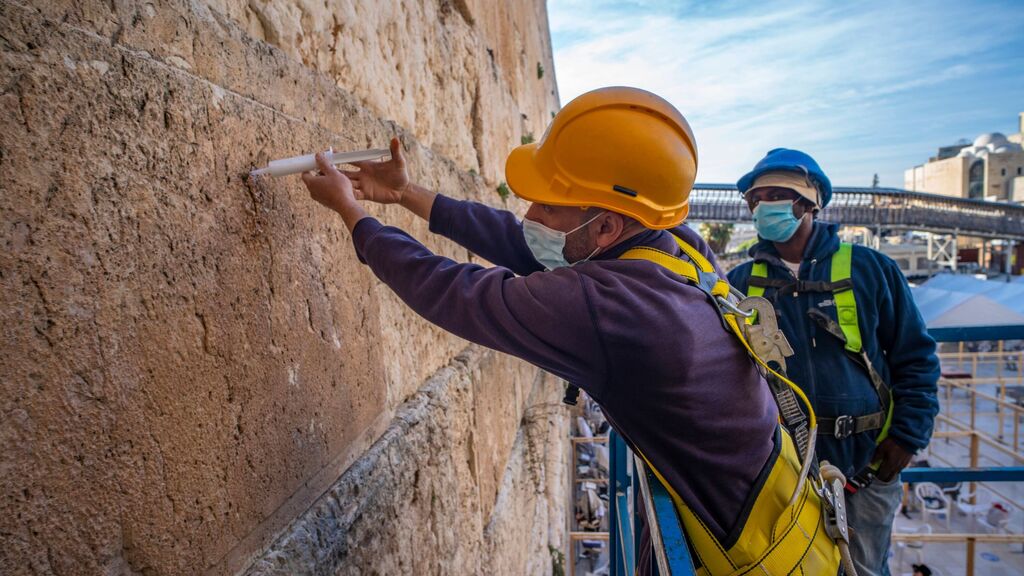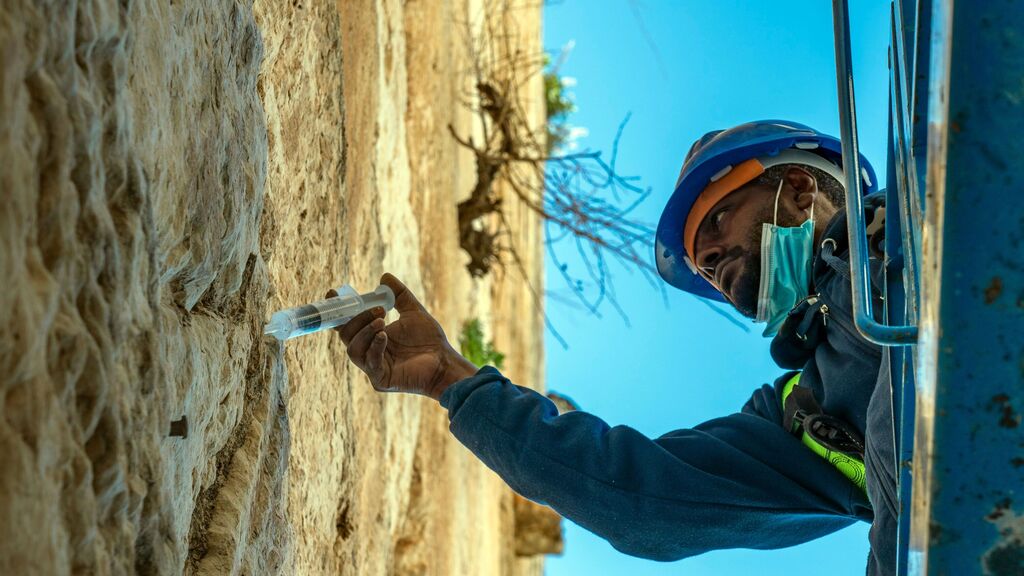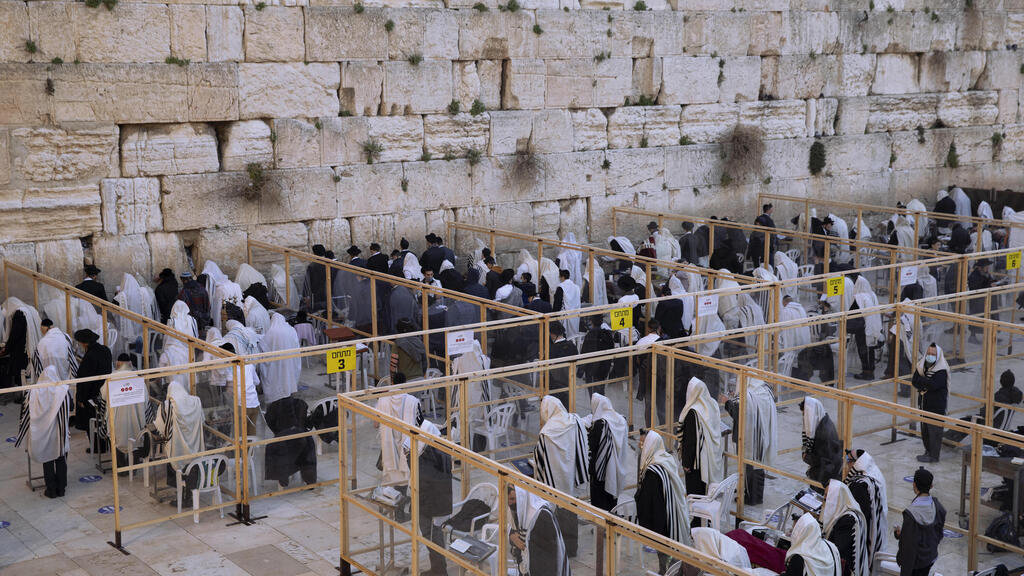Before thousands of worshipers vaccinated against COVID-19 flock to the usually bustling Western Wall Plaza in Jerusalem, the Western Wall Heritage Foundation launched efforts to preserve the stones making up the 2,000-year-old holy site — injecting its crevices with filler material using syringes.
Officials said they were aiming at preventing the scenes from July 2018 from repeating when a large stone detached from the wall and shattered in the egalitarian prayer area, only a few feet away from one of the women praying there. Luckily, nobody was hurt.
3 View gallery


Preservation workers inject filler material into the stones of the Western Wall using syringes
(Photo: Antiquities Authority)
According to the Antiquities Authority, one of the main reasons for the stones' wear is the vegetation that entrenches itself in the rock’s ancient foundations, as well as the various poultry that finds a home in the crevices of the wall.
"We take into account the importance of the place's unique flora and fauna when carrying out perservation work,” said Yossi Vaknin, who oversees the conservation of the Western Wall area on behalf of the Antiquities Authority.
”At the same time, we are working to ensure the stability of the stones, so that the Western Wall will maintain its strength for another 2,000 years.
According to Vaknin, conservation workers gently inject materials into the cracks and cavities of the stone which mimick its composition.
“This is the ultimate vaccine for the most important stones in the world against the ravages of time," he added.
3 View gallery


Preservation worker injects filler material into the stones of the Western Wall using syringes
(Photo: Antiquities Authority)
Western Wall Heritage Foundation Director Mordechai Eliav said they were preparing for the return of millions of worshipers that could not arrive at the site due to the coronavirus pandemic.
“Every year, more than 12 million people visit the Western Wall Plaza, although this year many connected to the wall [via our website] due to coronavirus," Eliav said. "Now we are preparing for the return of worshipers to the plaza.”
“The Western Wall Heritage Foundation is doing everything in its power to preserve the ancient stones and their stability for the safety of worshipers and visitors."


